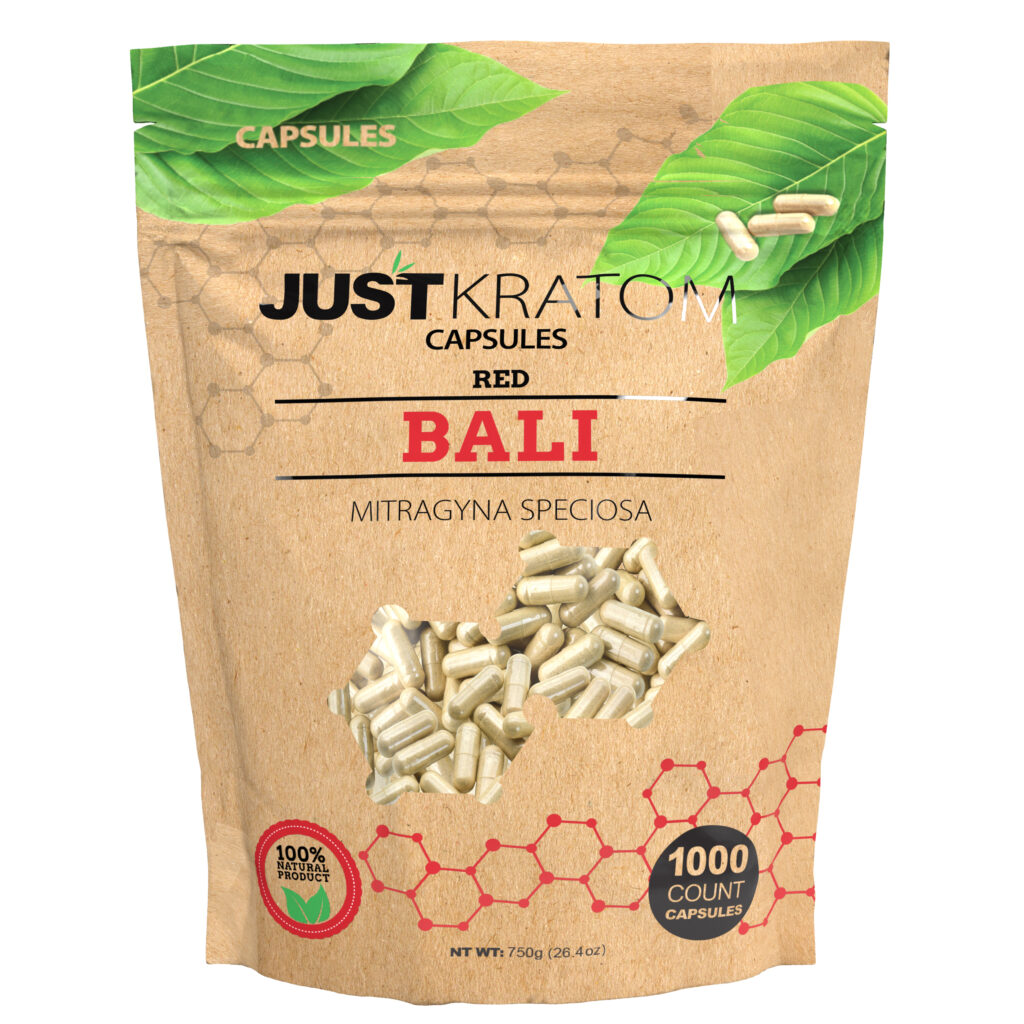Potential Benefits
Exploring potential benefits can be an important part of understanding any substance, including kratom. While concerns about long-term use exist, research suggests that kratom may offer a range of potential advantages, making it worthwhile to delve deeper into the potential risks and rewards associated with capsule form consumption.

Pain Relief
One of the most commonly cited benefits of kratom is its ability to alleviate pain. Kratom contains compounds that are thought to interact with opioid receptors in the brain, similar to how prescription painkillers work. Users often report experiencing relief from chronic pain conditions such as arthritis, back pain, and fibromyalgia.
Mood Elevation
Another potential benefit of kratom is its mood-elevating effects. Some individuals find that kratom can help reduce feelings of anxiety and depression. This effect may be linked to kratom’s ability to stimulate the release of dopamine, a neurotransmitter associated with pleasure and reward.
Energy Boost
Beyond pain relief and mood elevation, kratom has been associated with several other potential benefits. These include:
- Increased energy levels
- Improved cognitive function
- Enhanced focus and concentration
Let me know if you would like to explore these potential benefits in more detail.
Potential Risks and Side Effects
Despite the potential advantages, it is crucial to acknowledge the potential risks and side effects associated with kratom consumption, particularly long-term use. Potential adverse effects can range from mild discomfort to serious health complications.
Gastrointestinal Issues
Gastrointestinal issues are among the most commonly reported side effects of kratom use. These can include nausea, vomiting, diarrhea, and constipation.
The severity of gastrointestinal symptoms can vary depending on factors such as dosage, individual tolerance, and the preparation method of kratom. Some individuals may experience these symptoms only at high doses or after prolonged use.
It is important to note that long-term kratom use may increase the risk of developing chronic gastrointestinal problems.
Cardiovascular Effects
Cardiovascular effects are a significant concern associated with long-term kratom use. Kratom can influence heart rate and blood pressure, potentially leading to palpitations, tachycardia (rapid heartbeat), and hypertension.

There is evidence suggesting that prolonged kratom consumption may contribute to an increased risk of cardiovascular disease. This risk may be heightened in individuals with pre-existing heart conditions or other risk factors.
It is important for anyone considering long-term kratom use to consult with a healthcare professional to assess potential cardiovascular risks and receive personalized advice.
Addiction and Dependence
While kratom shows promise as a therapeutic agent, it’s essential to understand the potential risks associated with long-term capsule form consumption.
- Addiction and Dependence: Kratom contains alkaloids that can produce euphoric effects, making it potentially addictive. Regular use can lead to dependence, meaning individuals may experience withdrawal symptoms when trying to discontinue use. These symptoms can include fatigue, irritability, muscle aches, and nausea.
- Long-Term Health Effects: The long-term health consequences of chronic kratom use are not fully understood due to limited research. However, there are concerns regarding potential liver damage, respiratory issues, and neurological effects with prolonged exposure.
- Drug Interactions: Kratom can interact with various medications, including antidepressants, opioids, and blood thinners. This interaction can lead to unpredictable side effects or reduced effectiveness of the medication.
- Quality Control Issues: The kratom market is not tightly regulated, which means the quality and purity of capsules can vary widely. Contamination with harmful substances is a potential concern.
It’s crucial to consult with a healthcare professional before using kratom, especially for long-term use. They can assess your individual health status, potential risks, and advise on safe usage practices.
Long-Term Health Effects
Understanding the potential long-term health effects of any substance is essential for making informed decisions about its use. Kratom, a botanical with growing popularity, has been associated with both potential benefits and risks, particularly when consumed over extended periods.
Liver Damage
While kratom shows promise as a therapeutic agent, it’s essential to understand the potential risks associated with long-term capsule form consumption.
- Liver Damage: Kratom can potentially lead to liver damage, especially with prolonged or high doses. The alkaloids in kratom may strain the liver’s ability to process them, leading to inflammation and potentially irreversible damage. Symptoms of liver damage can include fatigue, jaundice, abdominal pain, and changes in urine color.
- Addiction and Dependence: Kratom contains alkaloids that can produce euphoric effects, making it potentially addictive. Regular use can lead to dependence, meaning individuals may experience withdrawal symptoms when trying to discontinue use. These symptoms can include fatigue, irritability, muscle aches, and nausea.
- Long-Term Health Effects: The long-term health consequences of chronic kratom use are not fully understood due to limited research. However, there are concerns regarding potential liver damage, respiratory issues, and neurological effects with prolonged exposure.
- Drug Interactions: Kratom can interact with various medications, including antidepressants, opioids, and blood thinners. This interaction can lead to unpredictable side effects or reduced effectiveness of the medication.
- Quality Control Issues: The kratom market is not tightly regulated, which means the quality and purity of capsules can vary widely. Contamination with harmful substances is a potential concern.
It’s crucial to consult with a healthcare professional before using kratom, especially for long-term use. They can assess your individual health status, potential risks, and advise on safe usage practices.
Mental Health Impacts
It is important to approach kratom consumption with caution, particularly when considering long-term use. While kratom may offer potential benefits, the long-term health effects are not yet fully understood.
- Mental Health Impacts: Kratom can have a significant impact on mental health. While some users report mood elevation and reduced anxiety, prolonged use can potentially lead to dependence and addiction. Withdrawal symptoms from kratom can include irritability, anxiety, and depression, exacerbating existing mental health conditions.
- Long-Term Cognitive Effects: Research on the long-term cognitive effects of kratom is limited. However, there are concerns that chronic use may contribute to cognitive decline or impairment.
It is essential for individuals considering long-term kratom use to consult with a healthcare professional to discuss potential risks and benefits.
Drug Interactions
Long-term kratom use can carry significant risks, particularly concerning its potential impact on the liver, cardiovascular system, and mental health. The alkaloids in kratom can strain the liver, potentially leading to inflammation and damage over time.
Kratom’s effects on the cardiovascular system are also a concern, as it can influence heart rate and blood pressure, increasing the risk of palpitations, tachycardia (rapid heartbeat), and hypertension. Prolonged use may contribute to an increased risk of cardiovascular disease, especially in individuals with pre-existing heart conditions.

Mental health is another crucial consideration. While kratom may initially elevate mood, long-term use can lead to dependence and addiction. Withdrawal symptoms can exacerbate existing mental health conditions or trigger new ones.
Regulation and Quality Control
Regulation and quality control are essential aspects of ensuring the safety and efficacy of any substance intended for human consumption. In the case of kratom, a botanical with growing popularity, the lack of stringent regulations raises concerns about potential adulteration, contamination, and variability in potency. This makes it particularly important for consumers to be aware of the risks associated with kratom use and to exercise caution when sourcing and consuming this substance.
Lack of Standardized Dosing
One major concern regarding long-term kratom use is the lack of standardized dosing. Since kratom products are not tightly regulated, the potency and concentration of active compounds can vary significantly from one batch to another or even within the same batch.
- This variability makes it difficult for users to determine a safe and effective dosage.
- It can also increase the risk of accidentally consuming too much kratom, leading to adverse effects such as nausea, vomiting, confusion, and respiratory depression.
The absence of standardized dosing guidelines also hinders research efforts aimed at understanding the long-term effects of kratom.
Contamination Risks
Regulation and quality control are crucial for ensuring the safety and purity of any substance intended for human consumption, and kratom is no exception.
The lack of stringent regulations in the kratom market raises several concerns:
- Adulteration: Kratom products may be contaminated with harmful substances, such as heavy metals, pesticides, or other adulterants, which can pose serious health risks.
- Inaccurate Labeling: Product labels may not accurately reflect the contents or potency of the kratom, making it difficult for consumers to assess the risks and make informed decisions.
- Variability in Potency: The concentration of active compounds in kratom can vary significantly between batches and even within the same batch, leading to unpredictable effects and increased risk of adverse reactions.
These quality control issues highlight the need for stricter regulations and standardized testing protocols to protect consumers who choose to use kratom.
Legal Status and Accessibility
The legal status of kratom varies significantly around the world. In some countries, it is entirely banned, while in others, it is legal with varying levels of regulation.
Within the United States, kratom’s legal status is complex and fragmented. It is currently legal at the federal level but faces restrictions or bans in several states.
Accessibility to kratom can also be influenced by local laws, retailer policies, and online sales regulations.
Individuals seeking information about kratom’s legal status in their specific location should consult with legal counsel or refer to official government resources.
Get Kratom capsules for stress management
- Xela Rederm Skin Booster Treatments Near Petersham, Surrey - January 14, 2026
- Xela Rederm Skin Booster Treatments Near Chertsey, Surrey - January 11, 2026
- Why The Vista Edge Series Vape Is Gaining Popularity In The UK - January 8, 2026
